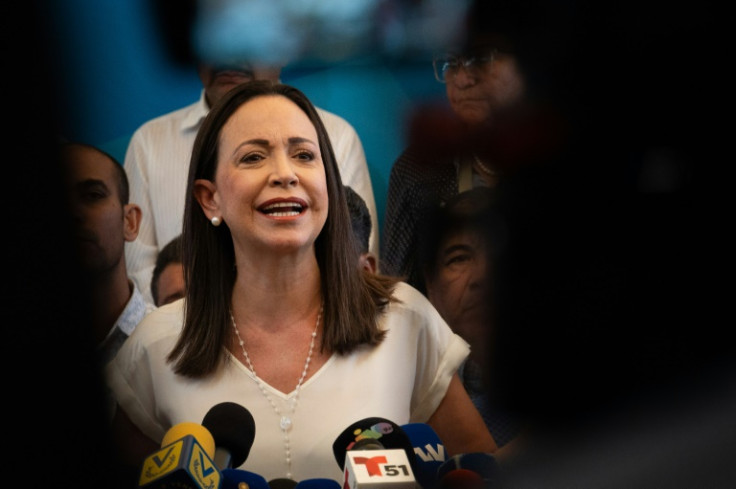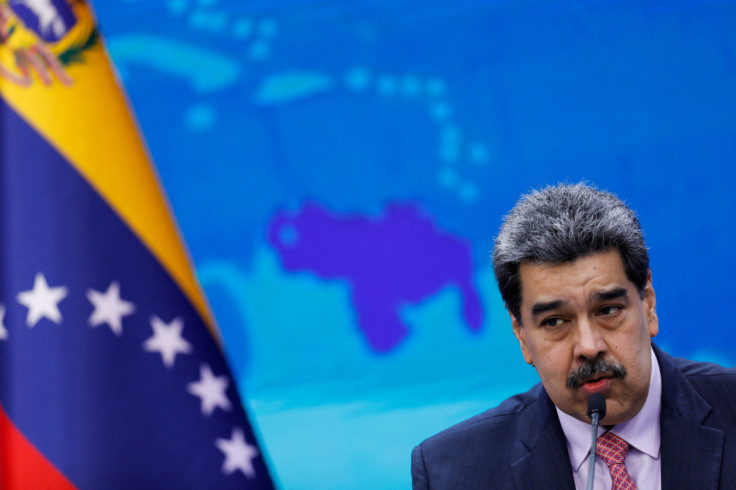
Venezuelan opposition leader María Corina Machado has reported that 37 activists have been "arbitrarily detained" so far this year in the run-up to the July 28 elections in which President Nicolás Maduro is seeking a third consecutive term.
"What we are seeing in Venezuela right now is that the regime is criminalizing the electoral process, criminalizing electoral activity and campaign. So far this year, 37 political and social leaders have been imprisoned by the tyranny," Machado said in an interview with the press.
Of the detained opposition leaders, 10 are directly linked to the opposition campaign command headed by Machado, which has Edmundo González Urrutia as its main candidate to face Maduro in these elections. Another six are in the Argentine embassy," added the opposition leader.
The 54-year-old leader, who had been elected as the candidate of the Democratic Unity Platform (PUD) in a wide-ranging primary last October but was later barred from running in the election, said two of her aides were detained Monday near her campaign headquarters in Caracas, Venezuela's capital.
"Today, two young people who were working at this headquarters on campaign activities went out to buy something for lunch nearby and were intercepted, detained, and taken to El Helicoide," said Machado, referring to a Caracas prison that human rights organizations describe as a "torture center."
The activists are Gabriel González and Javier Cisneros, and they were detained, according to Machado, for strictly political reasons. "They are accused of incitement to hatred and conspiracy to commit a crime simply for accompanying our candidate Edmundo González to an event in Vargas (La Guaira state)," she added. Cisneros was finally released on Monday afternoon.

In March, the United Nations' International Independent Fact-Finding Mission on Venezuela (FFM) warned that on the doors of 2024's elections Maduro's government has entered "a reactivation of the most violent form of repression."
The president of the UN mission, Marta Valiñas, said that there are "serious difficulties in ensuring that the upcoming presidential elections proceed in accordance with the right to participate in public affairs as outlined in the International Covenant on Civil and Political Rights."
Moreover, the Venezuela's National Electoral Council (CNE) revoked the invitation to the European Union to send observers to the electoral process, which some see as a sign that the elections are unlikely to be fair and competitive.
The Biden administration has also raised doubts about the process, reimposing oil and gas sanctions on Venezuela in April after the White House determined that Maduro had failed to comply with a U.S.-backed agreement to take several steps toward freer and fairer elections.
© 2024 Latin Times. All rights reserved. Do not reproduce without permission.







